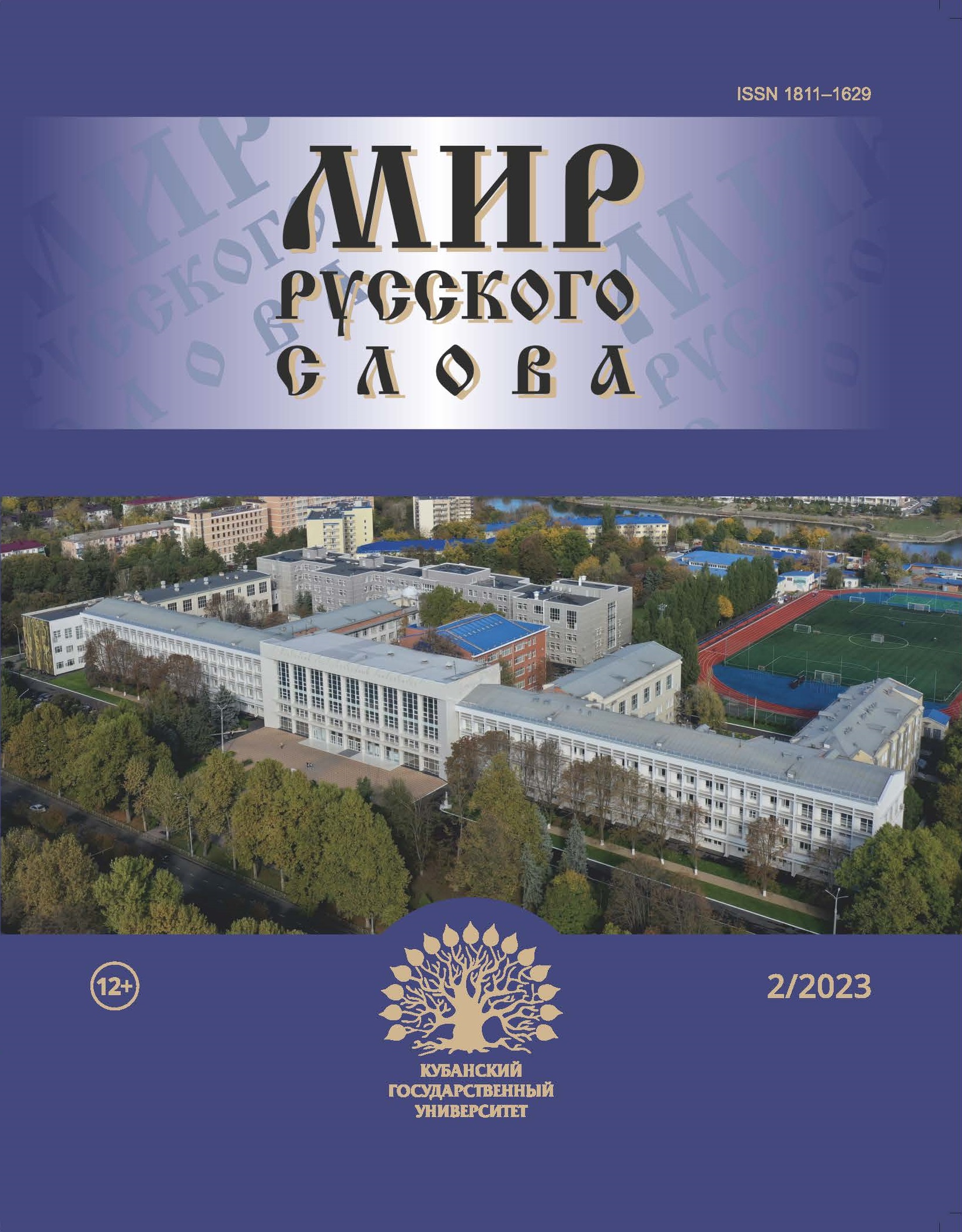Gender Aspect of Politeness Expression (Based on the Material of Briefings by Official Representatives of the Russian Foreign Ministry)
DOI:
https://doi.org/10.21638/spbu30.2023.205Abstract
The article is devoted to the study of the expression of politeness in the Russian language, based on the material of briefings and the influence of gender parameters. Most of the works devoted to the category of politeness are currently comparative studies of different languages. This work requires continuation in both theoretical and practical aspects, and the problem of gender specificity of speech acts is one of the most pressing in sociolinguistics and gender linguistics. For the first time, the texts of briefings were used as material for studying the category of politeness and its manifestations. Briefing as a genre belongs to the periphery of political discourse and intersects with the sphere of diplomatic discourse; texts of this type are characterized by the presence of both official business and journalistic features, the analysis of which complements the study of polite expression and political discourse. Polite expressions in briefing texts are classified by speech acts, politeness models of various speech acts are listed, and the total number of polite expressions in the material and the number of polite expressions in different categories are calculated. Statistical results are used to analyze the characteristics of polite expression in the briefing, preferences and gender differences in politeness expression. The results of the study contribute to the study of the specifics of the use of politeness expressions in different texts, as well as the observation of the modern influence of gender factors on the expression of politeness and trends in the development of gender differences in society.
Keywords:
gender, politeness expressions, briefing, style features, speech act
Downloads
References
Downloads
Published
How to Cite
Issue
Section
License
Articles of "The World of Russian Word" are open access distributed under the terms of the License Agreement with Saint Petersburg State University, which permits to the authors unrestricted distribution and self-archiving free of charge.




